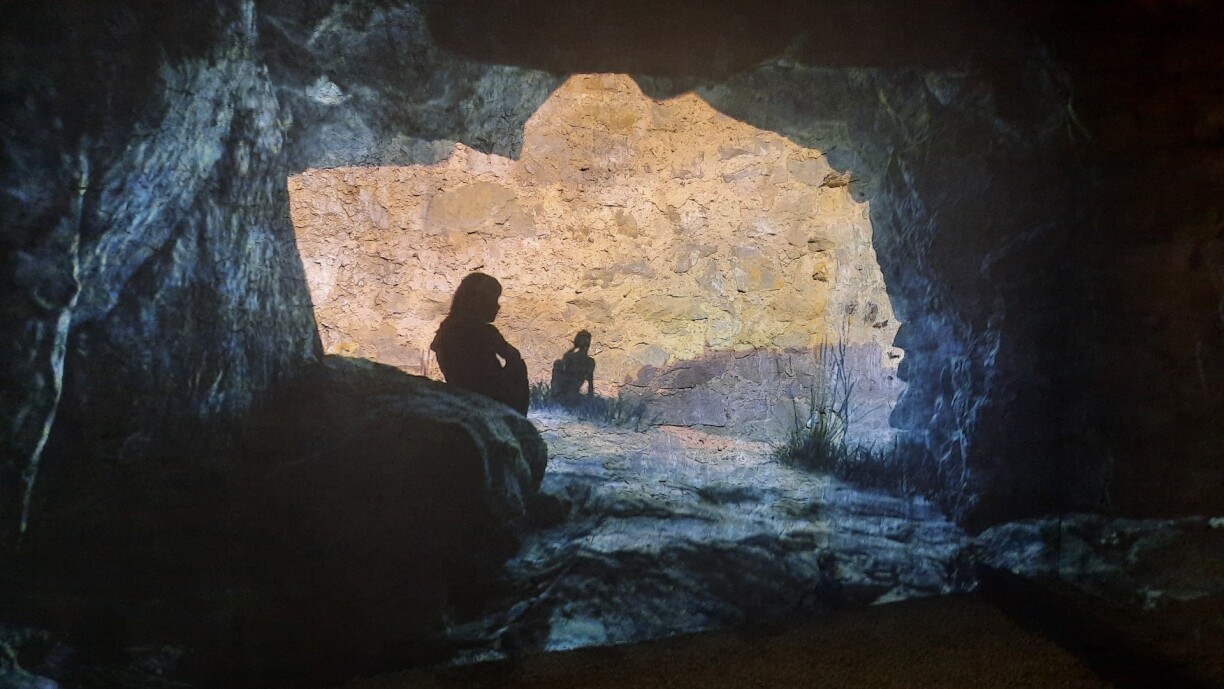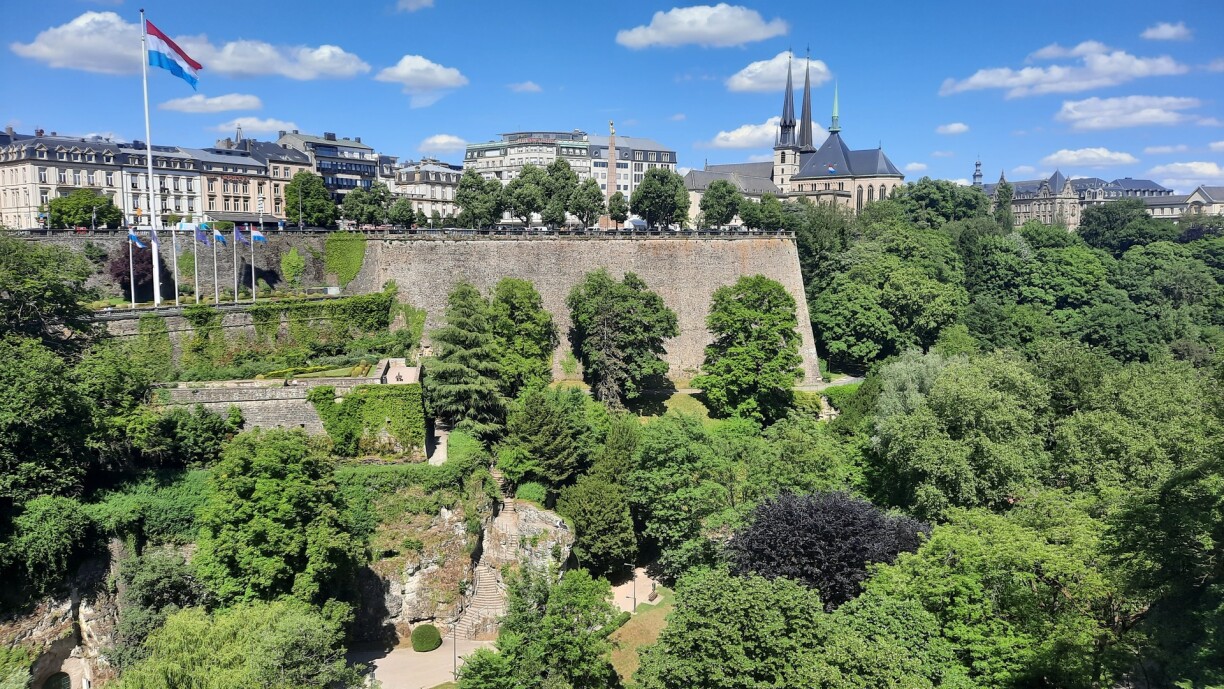The casemates in the capital underwent a “major facelift”, which took much longer than originally planned. Closed for more than seven years, the casemates of the Pétrusse reopen this Sunday 5 June to tourists who will finally be able to revisit one of their favourite attractions in the Grand Duchy’s capital. Its fortifications have been listed as a UNESCO World Heritage Site since 1994.
Located in the heart of Luxembourg City and facing the Pétrusse valley, the fortifications, which were officially reopened on Thursday by Grand Duke Henri, had their “feet in the water” every time it rained on their “head”, i.e. on Place de la Constitution.
Water seepage that has jeopardised the safety of the site for tourists over the years. In early 2015, the Luxembourg City Tourist Office (LCTO) and the municipality decided to close the casemates to improve the installations. At this point “the water was running down the stairs and we were walking on rotten boards so we didn’t have to wear boots”, recalls Jean Hertges, an engineer at Jean Schmit Engineering, whose major technical challenge was to drain the casemates by creating a whole series of collection shafts.
“Along the way, we said to ourselves: why not showcase the casemates with a scenography,” says Tom Bellion, director of the LCTO. The idea was to “offer a unique experience to future visitors” and to keep the site in the top three most visited places in the country.
Tido Brussig, a set designer from Munich, explains that the basic idea was to show what really happened in different locations in the casemates. The casemates were used to store bottles of champagne, as a location for beer festivals or plays, and even mushrooms have been grown down there, Brussig explains, before adding that “no shots have ever been fired from here!”.
Incredible as it may seem, the rock faces have indeed never echoed a shot from a gun or cannon but have been the setting for a whole series of human events and endeavours. This is what tourists who venture there will soon discover, thanks to new light and sound effects.

Two masterpieces animate the visit which leads through the galleries and 242 steps down to the exit with a view of the Pétrusse. The first is a square room in the heart of the fortress, renamed “mainshow”. On a bare slab of stone, visitors will be able to see projected images reminiscent of the long history of the E. Mercier Champagne cellar, the mushroom farm of the “Pastetchen” ravelin, the headquarters of the shooting society, and the air raid shelter of the casemates during the last two world wars.
The second is the “Golden Rain” designed by the chief set designer: A golden-looking metal passageway in the middle of a long gallery that reflects glittering drops to the tune of bells. It is located right under the base of the ‘Gëlle Fra’, the national monument on Place de la Constitution. With this surprising construction, “we are symbolically rooting freedom in the rock”, says Tom Bellion.

The director of the LCTO is hopeful that the Bock casemates will reopen " sometime during the year”. He has even set himself a target that could be reached after this double reopening. “In 2019 (before Covid-19) we welcomed 152,000 visitors to the Bock casemates. In the course of this year, we want to reopen both casemates and keep them open seven days a week to exceed 200,000 visitors per year,” Bellion announced.
“Place de la Constitution will be renovated in a few years when the works on Place Guillaume II are finished. At that time there will be another entrance to the casemates with a real visitor centre,” reveals Marc Angel, president of the LCTO.
Tickets can be purchased online at luxembourg-city.com and at the LCTO reception desk at Place Guillaume II. Cost of the visit: €15 for an adult, €12 for students and seniors, €7,50 for children (4-12 years old). Free for children under 4 years old.https://5minutes.rtl.lu/actu/luxembourg/a/1909508.html